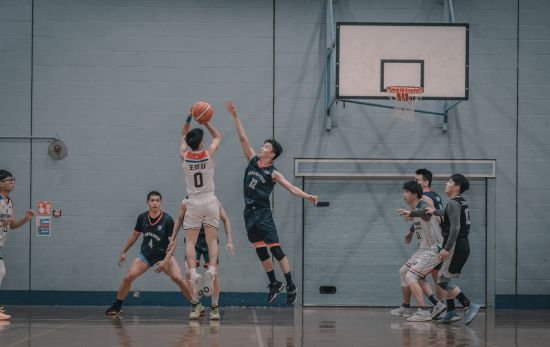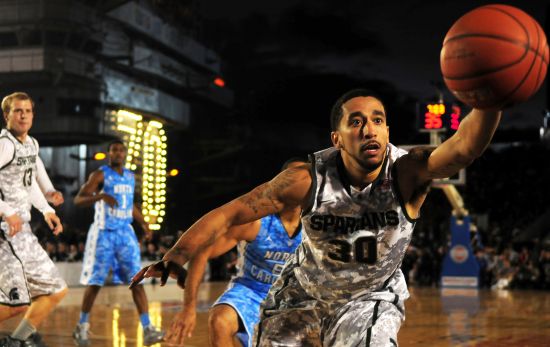
For basketball enthusiasts worldwide, a player’s jersey number signifies so much more than an enumeration; it’s legacy, identity, and style, for sure. The name Michael Jordan, arguably the greatest basketball player ever to play in the NBA, brings the number 23 to mind. Kobe Bryant’s legendary number 24 will forever be etched into the annals of NBA history. These numbers aren’t chosen at random but are closely linked with personal stories, cultural trends, and fan loyalty.
This article will explore the most popular NBA jersey numbers, examining why players and fans gravitate toward certain numbers and how these choices have become iconic. We’ll also highlight how street basketball and popular culture have influenced the trend and the future of NBA jersey numbers.
The Allure of Single-Digit Numbers
Why Single-Digit Numbers?
Single-digit numbers have a special appeal in the NBA. They are neat, bold, and memorable, making them ideal for branding and player recognition. From a psychological perspective, single digits represent simplicity and confidence. When a player wears a single-digit number, it often depicts their desire to stand out in minimalism and individuality.
For instance, the digit 3 is associated with sharpshooters who shoot with precision and accuracy. Allen Iverson and Chris Paul are some of those examples. On the other hand, the number 1 symbolizes leadership or being first, which automatically attracts players to make a mark on the court.
The Phenomenon of “Zero”
The emergence of number 0 in the NBA has made it such a trendy occurrence. Zero once symbolized a rebellious number but later became something associated with a new life of endless opportunities. Damian Lillard and Russell Westbrook, for instance, are some players who have transformed the jersey number zero. Westbrook once explained that the number signifies a new beginning. Zero is not just a number; it has become a statement. For fans and players, this bold and unique presence on the court is one reason why the appeal lies in wearing zero. While challenging tradition, it carries cultural weight.
The trend that Zero continues to go along with speaks volumes about how the NBA changes with each passing personality of its players and how a number in a jersey can actually form part of an athlete’s story.
The Most Popular Numbers in NBA History

Number 23: The Michael Jordan Effect
No discussion about NBA jersey numbers is complete without mentioning 23, the number that Michael Jordan made legendary. Jordan’s influence extended beyond his on-court performances; he turned 23 into a global phenomenon. Fans around the world began associating the number with greatness, success, and hard work.
Jordan’s popularity was an inspiration to other basketball players. Many wore 23 to pay homage. For example, current NBA star, LeBron James, wore number 23 as a testament to the legend that was Jordan. The influence and legacy of Jordan do not stop, ensuring that the number 23 will be a highly regarded number in basketball history.
Number 34: The Shaquille O’Neal and Hakeem Olajuwon Legacy
Another historic weight-bearing NBA jersey number is 34. Even though Magic Johnson briefly wore it, players like Shaq and Hakeem Olajuwon made number 34 legendary. Shaq’s paint presence and Olajuwon’s finesse brought an even more prominent reputation for the number, being a versatile power.
Intriguingly, many fans had their choice in 34 in an attempt to break a one-digit streak. Whether the viewer saw Shaq blow out backboards or Olajuwon pulls off a perfect “Dream Shake,” the player wore number 34 was leaving one in the game.
Number 24: Kobe Bryant’s Legacy
The late Kobe Bryant created the ultimate legacy in the form of the number 24. Though Kobe started his game in the number 8, he later shifted to donning the number 24 as a logo for growth, maturity, and change as a basketball player. Number 24 symbolized hard work without relenting, resilience, and competitiveness—values through which Kobe lived throughout his life.
Kobe’s influence on the number extends far beyond the NBA. His fans around the world were wearing 24 jerseys, hats, and merchandise. This is why it has become one of the most popular numbers in sports history, inspiring a new generation of players and fans.
The Role of Street Basketball and Popular Culture
The Influence of Street Basketball
Street basketball has played a crucial role in influencing NBA jersey trends. In streetball culture, numbers often carry personal meanings to people, representing neighborhood pride, childhood memories, or favorite NBA legends. Players from streetball circuits such as Rucker Park or The Drew League often wear numbers to pay homage to their roots.
Street basketball allows players to express individuality through their NBA Jersey Numbers, often influencing their decisions once they reach the NBA. For example, numbers like 1, 3, or 0 are commonly seen in street basketball tournaments and later adopted by professional athletes. Streetball stars like Hot Sauce and Skip to My Lou popularized this trend, fusing street culture with the professional game.
The Impact of Movies & TV Shows
Popular culture has also played a role in jersey number trends. Movies like Space Jam, featuring Michael Jordan, or shows like The Last Dance have glorified iconic jersey numbers. Fans often imitate what they see on the screen, adding to the popularity of certain numbers.
More particularly, basketball legend movies combined with video games like NBA 2K enable players to emulate their heroes by choosing their iconic numbers. The cultural synergy between entertainment and basketball ensures that the iconic numbers are in the limelight for years to come.
The Future of Jersey Numbers in the NBA

Emerging Trends
Jersey numbers in the NBA are constantly evolving. In recent years, we’ve seen more players experiment with unconventional numbers. Numbers like 77 (worn by Luka Doncic) and 99 (worn by Jae Crowder) are gaining traction. Social media and global fan engagement are also pushing new trends, as players use their jersey numbers to create personal brands.
The Role of Player Preference and Team Culture
Players often choose numbers based on personal preference or team traditions. Some teams retire numbers to honor legends, limiting options for new players. For example, the Los Angeles Lakers have retired numbers like 8, 24, and 34, forcing incoming players to pick unique alternatives.
As players look to build their own careers, we should expect this trend to see a comingling of traditional and unconventional numbers down the road. Street basketball and player-driven narratives should continue to play a shaping role in this trend.
Conclusion
The more the NBA is growing, the trends regarding NBA Jersey Numbers will increase with time. Social media and street basketball, along with individualist branding by players, keep bringing new ideas for forming next-generation iconic numbers. Be it number zero, 23, or some unusual variant, the magic of this jersey number in the game will continue to enthrall its fans and inspire and inspire players for a good amount of time.
For basketball players and fans, jerseys symbolize more than just fashion wear; they symbolize style, identity, and performance. Versatility on the and off the court can only be achieved with reversible singlets that basketball enthusiasts have come to be desirous of. These singlets have been designed for utmost comfort and functionality, therefore great for training sessions, team scrimmages, or street basketball games.
Two-in-one designs of reversible singlets give durability along with style, ensuring the players are looking sharp from both sides. Ready to step up your game? Place your order now and find quality and custom-made options that suit your needs. Do you need bulk orders or have a personal design in mind? Order now and request a quote, and let us make perfect reversible singlets tailored to your needs for the team or event.
Originally published in Slam Style.

